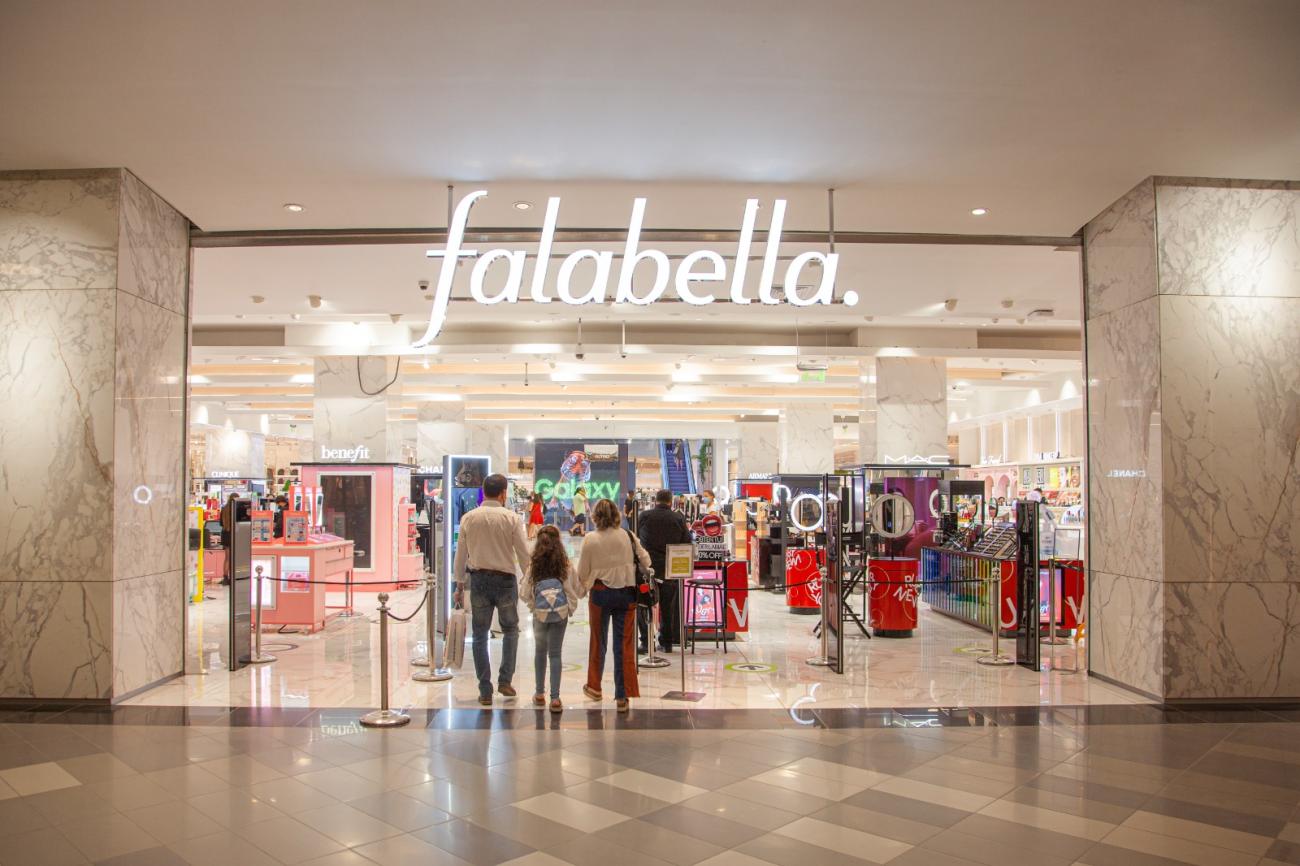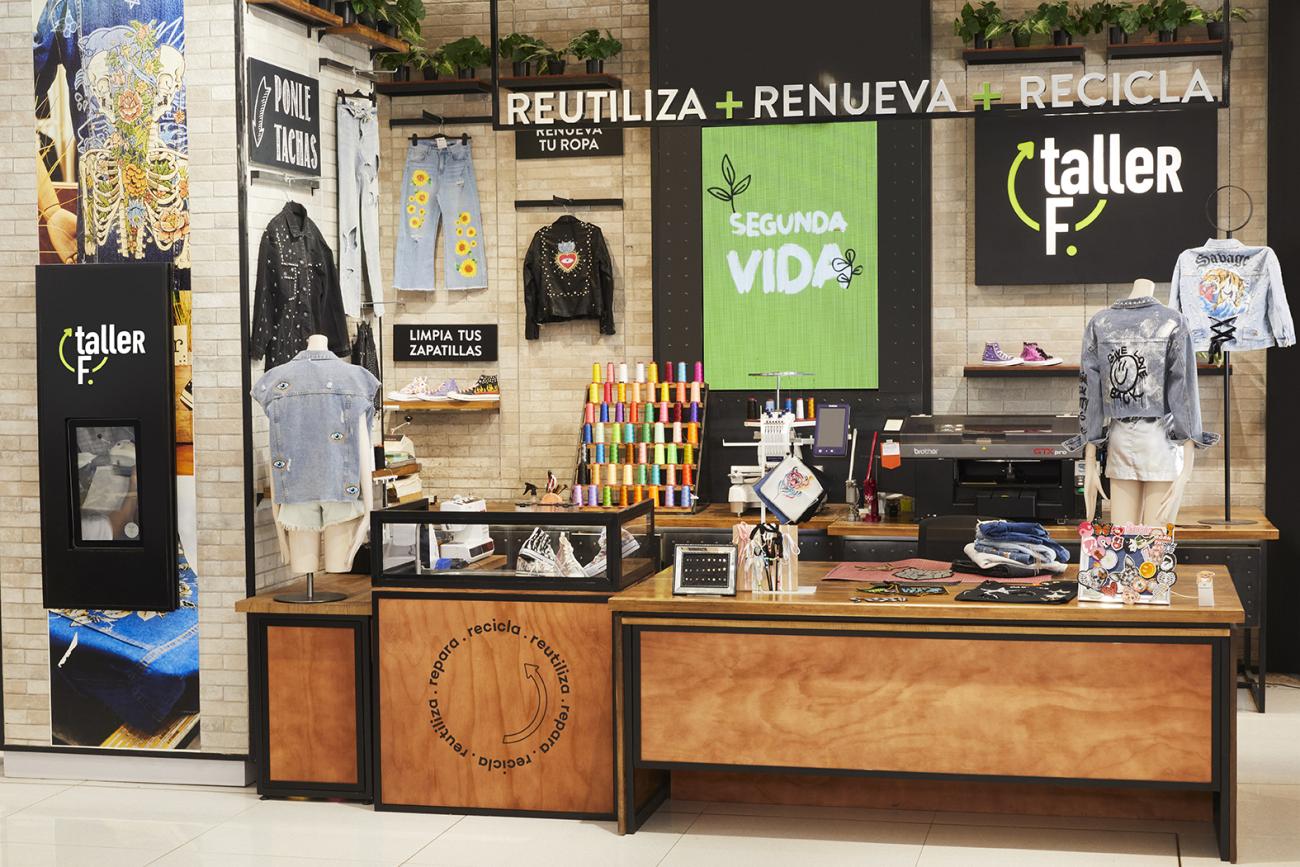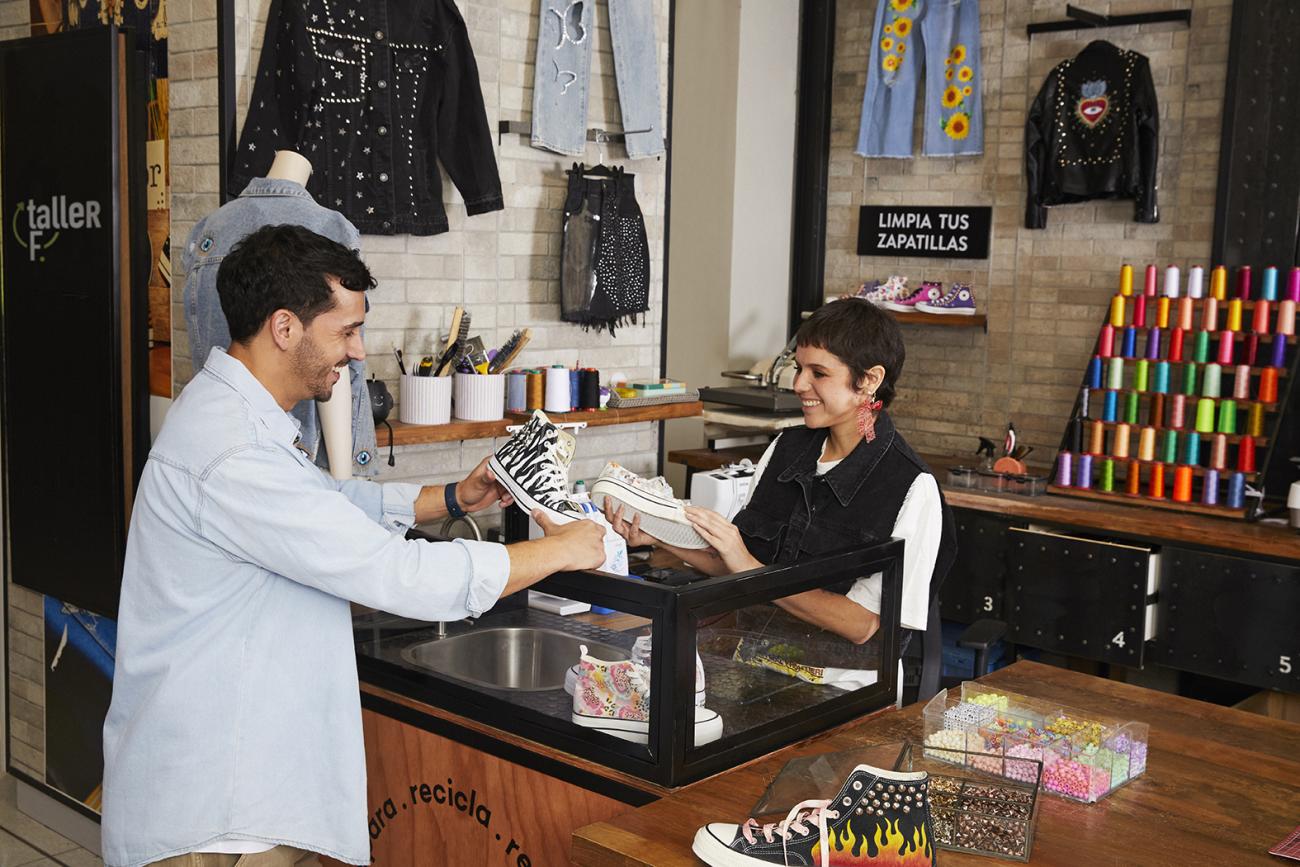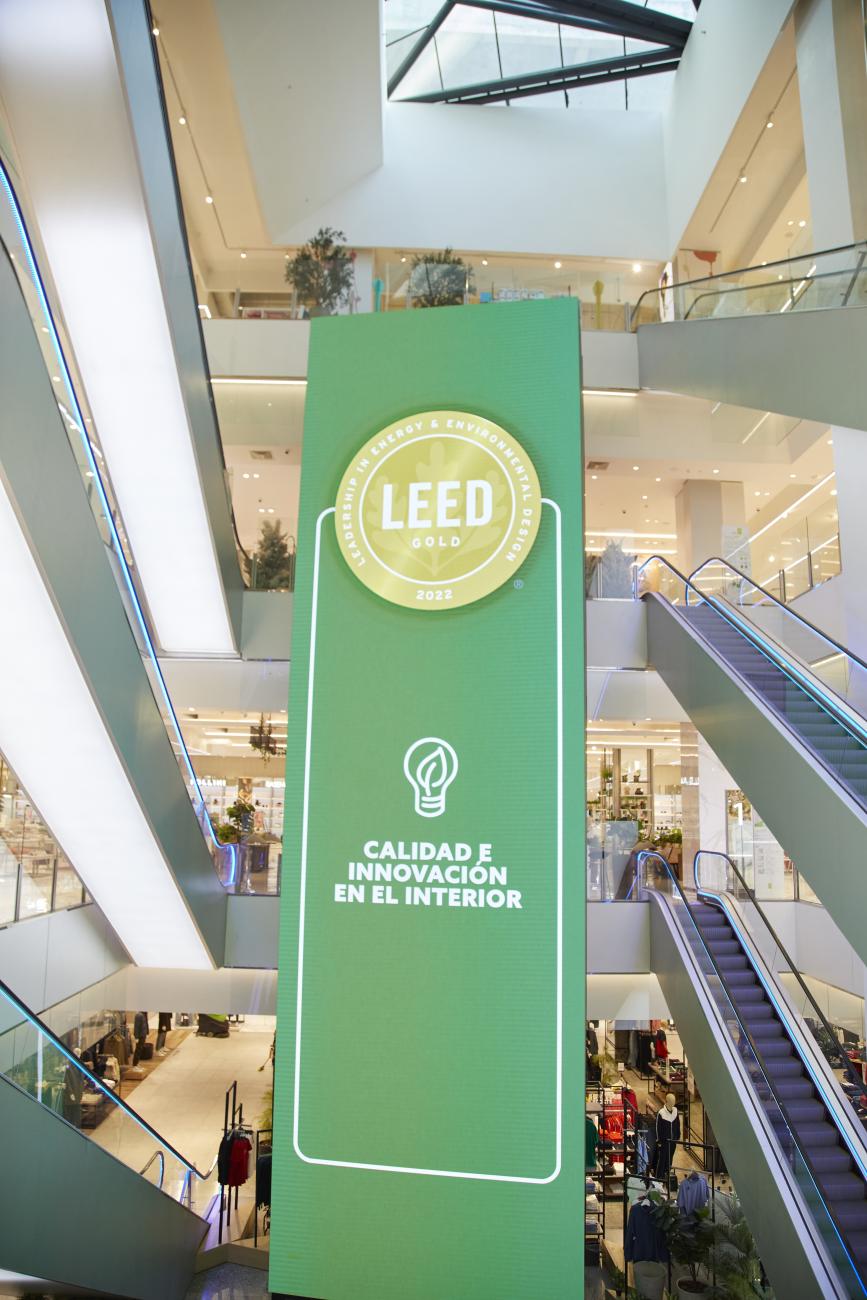The Chilean retail giant is working to include the entire value chain in its sustainability management in the three countries where it is present - Chile, Peru and Colombia - with adjustments to its strategy so that it can be adapted to local realities.
A possible concept to understand the sustainability strategy of the retail arm of the Chilean holding company, Falabella, could be “ambitious transversality.” Not only does it seek to align itself with the conglomerate's umbrella objectives in terms of sustainability strategy, but it also has a series of its own initiatives to cover the issues of sustainability, inclusion, female empowerment and community relations that have their own imprint that help them. to connect with your target audience.
The person who leads all this transit is its Sustainability Manager, Malena Marcalle, Master in Administration and Public Policies from the Universidad San Andrés, who joined Falabella in 2019, after having developed programs on social and productive innovation in various countries. of Latinamerica.
From that position, its main function is to lead the way in environmental care and the social and cultural development of Falabella stores for the benefit of the community. Marcalle detailed to AméricaEconomía the achievements and challenges of this strategy.

How has this management evolved, perhaps it started as CSR?
Indeed, this area started approximately ten years ago, first with a focus on corporate social responsibility, pivoting between philanthropy and addressing certain topics that were of interest to the company. Later it evolved to raise issues from the different stakeholders, until we began to talk about sustainability management that is responsible for managing the impacts we have as a business.
Over time, the area became known as sustainability and the milestone that consolidates it is when in 2023 sustainability is incorporated into the company's business model: it is no longer a component that tries to generate activities related to what we do in the business, but rather we think about the business with a sustainability focus.
It's a big leap, with Falabella Retail publishing its most recent sustainability report in May of this year.
It is something that makes us very proud, since we were able to publish the goals we have in terms of commitment and sustainability approach to 2030 at the regional level, thinking about the three countries where we have operations. And, in turn, it contains the management milestones already achieved, associated with the three pillars that we have defined: environmental initiatives, local development - where we have two large intervention groups, the community understood as the nearby territory of Falabella, as well as beyond Falabella- and local talent, more associated with the business world, collaborations with local artists and other activities.
But it also condenses the achievements of last year, which was a stage of very large consolidation of many of the initiatives we were doing.

What are the achievements that you would highlight in 2023?
Last year the strongest thing has been giving a second life to fashion, framed in the circularity strategy, which we call the circular economy ecosystem. There we have initiatives such as Taller F, barter, Closet Sales or second-hand sales, which grew quite a bit. In Local Development, which articulates intervention in the community, we have two very large focuses, one is the promotion of social development behind education, through the Making School program, which is now 55 years old, where we seek to improve the education of children in basic education, in a universe of 94,000 in 105 establishments in Chile, Peru and Colombia. And also in terms of Local Development, we have the Fuertes y Fantásticas project, which allows the empowerment and labor insertion of women, with success rates of 50%.
In addition, we had more than 40 collaborations with local artists. Regarding Talent and Agile Culture, which is diversity and inclusion, we work with different groups, whether sexual diversity, disabilities, migrants or gender equality. This aspect, in the added value or the greatest strategic value that we have as Falabella, not only because our main clients are women, but also because more than 60% of our staff are women. In this regard, last year we began working on the implementation of a gender equity management system using different tools such as policies, procedures, communication, governance, all designed to implement a system that seeks gender equity and conciliation between personal, family and professional life of women.
What goals do you have today in each of your work areas?
Although we always had management indicators that were common to all the business units in the three countries, this year we managed to launch these goals for 2030 on a regional basis, because of course there are different degrees of progress between the countries, and indeed with clear goals in each of our strategic pillars.
There we can highlight everything that is circular economy, where we want to grow with the F workshops until we have them in 40% of all our stores at a regional level, and increase by 50% the type of services we provide in them, since we currently have repair, renovation, and restoration services, but we want to continue increasing this number of services so that the client has a greater offer and availability of services, moving from clothing, or soft products, to hard products, such as phones or computers.
At the level of conscious brands, we are looking for at least 30% of the products we sell to have some sustainable attribute, backed by international certifications, and also for 30% of the units we sell to have chemical use and human health certifications. . In climate commitment, by 2035 we must be net zero in scope 1 and 2, it is something that we are pushing as a complete company, as a holding company.
We are aiming by 2030 for all our stores to have an energy management system implemented, and 100% of our stores with an internal recycling program: this year we are starting with the packaging strategy linked to the REP Law of Chile, with the That by 2030, we want 50% of all packaging units to have some sustainable materiality, and to reach a rate of 90% of our non-hazardous waste that does not end up in landfills.
In the Making School program, of the Local Development pillar, we aim to have a significant increase in the three countries by 2030, and that there is at least 50% annual participation of our collaborators in volunteer activities.
In the aspect of local talent, where we have the entire world of entrepreneurship and local artists, in 2030 we want to double the number of entrepreneurs with whom we work, train them and, of course, generate more collaborations. While, in diversity and inclusion, we will seek to increase or improve our performance at the level of people with disabilities incorporated within the company, women in top and middle management and, of course, the NPS (net promoter score) and the engagement they have. people who identify with some inclusion group within the company.
We have involved our collaborators in this, who number 24,170 at the regional level. And not to mention our suppliers, which is becoming an increasingly pressing issue for all industries and particularly the retail industry, which has a very complex supply chain, and basically we push them to be able to raise their standards, working like us, as business partners, with social audits and we are now in a traceability and transparency project that also aims to have much more visibility and traceability of everything that is the production process so that the client has more information at the end of the day.

How do you apply ESG criteria in your business strategy and how have you seen it impact your profitability?
We have had a very good reception from customers, attracting a profile of younger buyers, with a very good engagement with Falabella, the vast majority of whom are women. Always with this focus of not leaving fashion aside, but with a sustainable focus and with our portfolio of sustainable products that are backed by international certifications.
Another focus has to do with omnichannel, combining physical stores and also the marketplace is falabella.com. This means that we can deliver other experiences in stores that a retailer does not normally have. For example, in the digital world, where we also continue with this sustainability approach, when you can buy a large-volume product, you can contract the removal and recycling of that product precisely to be able to promote the circular economy also from your purchases. So, we continue from sustainability, pushing this omnichannel and this entertainment and difference.
There seems to be no turning back on this path...
No, there is no turning back. And I'm not just talking about the retail industry, but about industries in general: if they don't get on the sustainability boat, they are already out of fashion.






